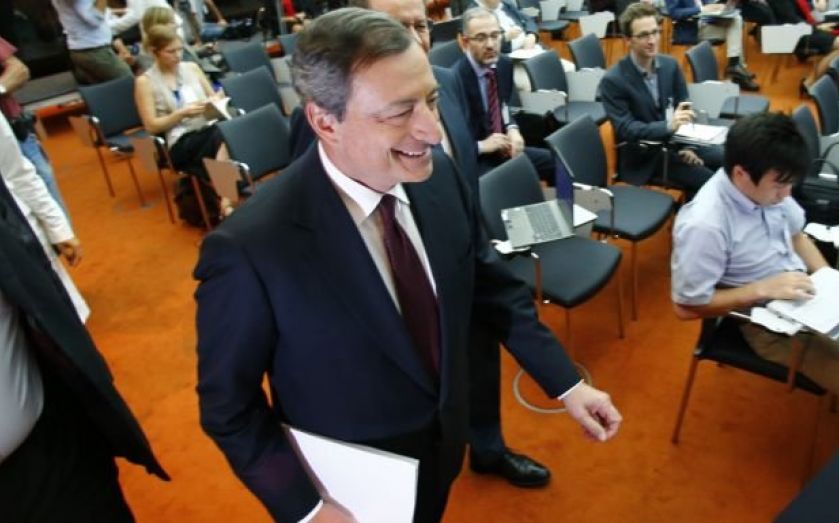| Updated:
Draghi: Ukraine crisis a threat to the Eurozone economy

Mario Draghi, president of the European Central Bank (ECB), today admitted that the Ukraine crisis represented a threat to the Eurozone economy.
The geopolitical concerns surrounding the Ukraine crisis and in particular the import ban imposed by Russia, were highlighted as a potential risk to European economic outlook by Draghi, but he insisted that the ECB was still analysing the situation.
He said: "We’re still assessing the possible impact of sanctions on the euro area economy we see risks especially from the price of energy.
"It is difficult to define what are the options in the future, especially if the conflict were to escalate. Our monetary policy stance will remain accommodative."
Russia has imposed a "full embargo" on food imports from a number of Western countries, in response to the European Union-imposed sanctions on their energy, defence and banking sectors.
Food and raw material exports to Russia brought €12.2bn (£9.7bn) to Europe in 2013.
The ECB had earlier announced that they would be sticking with the record low 0.15 per cent interest rates set in June.
Draghi confirmed interest rates will stay at their current level for an "extended period of time" and added that inflation expectations of close to, but below, two per cent remain.
At a press conference in Frankfurt, Draghi was optimistic about inflation rates, despite the fact they have been below one per cent for 10 months. He said: "Inflation expectations for the euro area over the medium to long term continue to be firmly anchored in line with our aim of maintaining inflation rates below, but close to, two per cent.
"The monetary policy measures decided in early June have led to an easing of the monetary policy stance."
Draghi also revealed that the ECB has hired a consultant to assist with the design of an asset backed securities purchase programme.
Draghi: Work on ABS programme is done with expectation to use it but no final decision taken yet
— ECB (@ecb) August 7, 2014
In response to questions over the bailout of Banco Espirito Santo, the Italian said:
What could have been a systemic incident is seen as an incident that is restricted to this bank and this bank’s owners. It is an episode which is being contained and has not affected the banking sector in Portugal, nor the markets at large, nor outside of Portugal.”